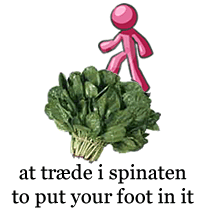This week I learnt the Russian expression до сих пор ― (do sikh por), which means still, hitherto, up to now, thus far, or literally “until this time”.
The пор comes from пора (pora – time, season, weather, period), which appears in such phrases as:
- пора́ идти́ (pora idti) = it’s time to go
- в са́мую по́ру (v samuju poru) = in the nick of time
- до каки́х пор? (do kakikh por?) = how long?
- с каки́х пор? (s kakikh por?) = since when?
- до тех пор, пока́ (do tekh por, poka) = so long as
- с тех пор, как (s tekh por, kak) = ever since
- на пе́рвых пора́х (na pervykh porakh) = at first
Source: Wiktionary
It’s interesting that пора means both time and weather – some other languages also have one word for both: temps in French, amzer in Breton, aimsir in Irish. Do you know of others?

